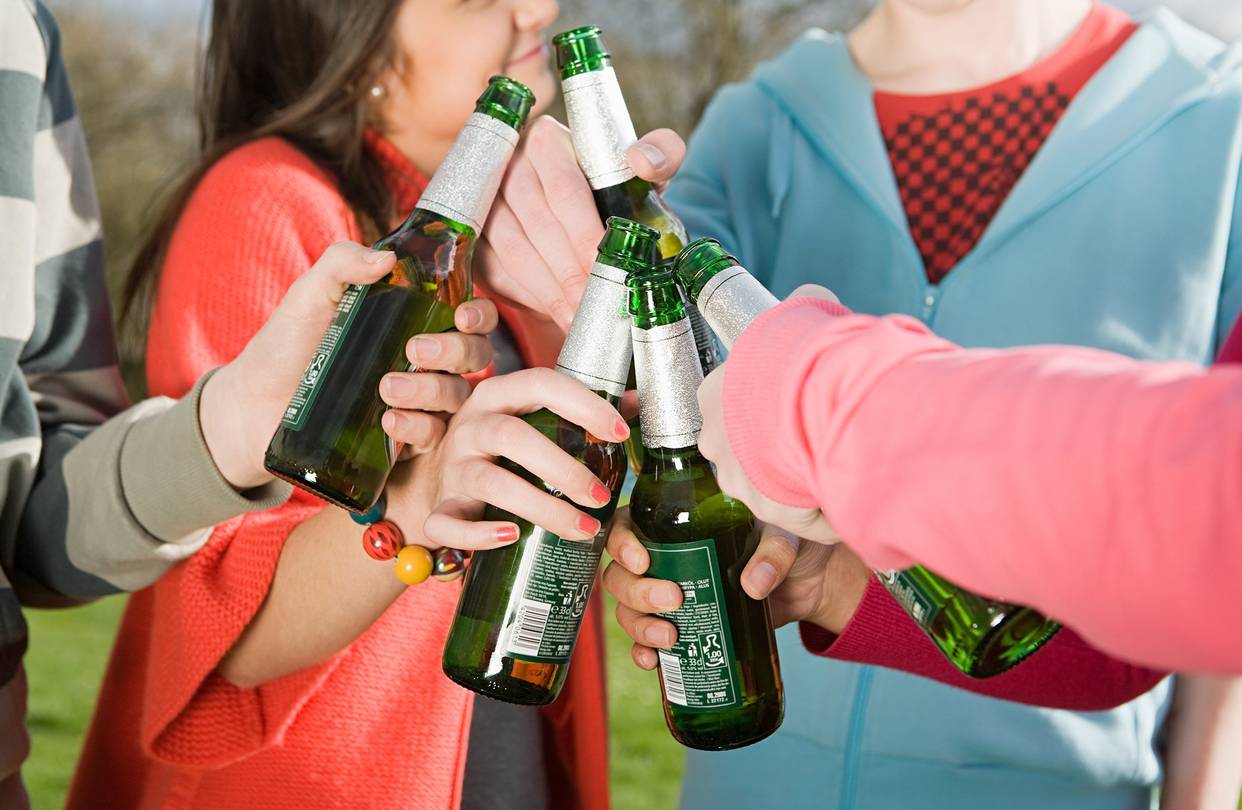
Ever wondered why under age drinking is such a hot topic? Well, you're about to find out! With a mix of curiosity and concern, society often buzzes about the impacts of alcohol consumption among the youth. But what's the real scoop? Under age drinking isn't just about breaking the law; it's a complex issue that touches on health, development, and social dynamics. From startling health risks to surprising statistics, we're diving into 16 amazing facts that shed light on this widespread concern. Ready to get your mind blown with some eye-opening insights? Let's crack open the lid on this can of worms and see what bubbles up to the surface!
Key Takeaways:
- Underage drinking can lead to long-term issues, risky behaviors, and health concerns. Education, parental influence, and community efforts are crucial in preventing and reducing its impact.
- Global cooperation and technology offer new solutions to combat underage drinking. By sharing strategies and successes, we can work together to reduce its prevalence worldwide.
Understanding Underage Drinking
Underage drinking refers to alcohol consumption by individuals below the legal drinking age in their respective countries. This phenomenon is not only a public health concern but also a complex social issue. Despite laws and regulations, underage drinking persists, influenced by various factors including peer pressure, curiosity, and the portrayal of alcohol in media.
-
Legal Drinking Age Varies Worldwide: In the United States, the legal drinking age is 21, one of the highest globally. Other countries have set different legal ages, with some as low as 16.
-
Early Exposure Can Lead to Long-term Issues: Research suggests that individuals who start drinking before age 15 are four times more likely to develop alcohol dependence at some point in their lives compared to those who wait until 21.
The Impact of Underage Drinking
The consequences of underage drinking are far-reaching, affecting not only the young individuals but also society at large.
-
Increased Risk of Accidents and Injuries: Underage drinkers are more likely to experience accidents, including car crashes, falls, and drowning, due to impaired judgment and coordination.
-
Effect on Brain Development: Alcohol can interfere with brain development in adolescents, potentially affecting memory, decision-making, and impulse control.
-
Association with Risky Behaviors: Young drinkers are more likely to engage in risky behaviors, such as unprotected sex or driving under the influence, leading to further health and legal issues.
Prevention and Education
Efforts to curb underage drinking focus on education, law enforcement, and community involvement.
-
School-based Programs Show Promise: Programs that educate students about the risks of alcohol have shown some success in reducing underage drinking rates.
-
Parental Influence is Crucial: Studies indicate that children whose parents talk to them about the dangers of alcohol are less likely to start drinking at a young age.
-
Community Efforts Make a Difference: Community-based initiatives, including alcohol-free events for teens, can provide safe alternatives and reduce the appeal of underage drinking.
Global Perspectives on Underage Drinking
Attitudes and practices regarding underage drinking vary significantly around the world, influenced by cultural, legal, and social factors.
-
Europe Has Mixed Results: Some European countries with lower legal drinking ages report higher rates of teen drinking, while others do not, suggesting that culture plays a significant role.
-
Strict Laws Don't Always Equate to Lower Rates: Countries with stringent alcohol policies don't necessarily have lower rates of underage drinking, highlighting the complexity of the issue.
-
Education Over Enforcement: In some regions, emphasis is placed more on educating youths about alcohol rather than strictly enforcing underage drinking laws, aiming for long-term behavioral change.
Health Risks and Underage Drinking
The health implications of underage drinking are serious and can have lasting effects.
-
Alcohol Poisoning is a Real Danger: Young drinkers, inexperienced with alcohol's effects, are at a higher risk for alcohol poisoning, which can be fatal.
-
Mental Health Concerns: Underage drinking is linked to an increased risk of developing mental health issues, including depression and anxiety.
-
Potential for Addiction: Early exposure to alcohol increases the likelihood of developing alcohol use disorders later in life.
Looking Ahead: Reducing Underage Drinking
Efforts to reduce underage drinking must be multifaceted, involving individuals, families, schools, and communities.
-
Technology Offers New Solutions: Digital tools, including apps and online programs, provide new ways to educate youths about the dangers of alcohol.
-
Global Cooperation is Key: Sharing strategies and successes between countries can help develop more effective approaches to combat underage drinking worldwide.
Underage drinking remains a challenge, but through continued education, enforcement, and community support, strides can be made in reducing its prevalence and impact.
A Final Sip on Underage Drinking Facts
We've journeyed through a landscape dotted with surprising, sometimes alarming facts about underage drinking. It's clear that this issue isn't just a rite of passage but a complex challenge with deep health, legal, and societal implications. Armed with knowledge, we're better positioned to foster conversations, implement preventive measures, and support initiatives aimed at reducing underage drinking. Awareness is the first step towards change. By understanding the risks and realities, communities can come together to create safer, healthier environments for young people. Let's keep the dialogue open, share what we've learned, and commit to making informed choices that protect the well-being of future generations. Remember, every effort counts in steering youth towards brighter, more secure futures.
Frequently Asked Questions
Was this page helpful?
Our commitment to delivering trustworthy and engaging content is at the heart of what we do. Each fact on our site is contributed by real users like you, bringing a wealth of diverse insights and information. To ensure the highest standards of accuracy and reliability, our dedicated editors meticulously review each submission. This process guarantees that the facts we share are not only fascinating but also credible. Trust in our commitment to quality and authenticity as you explore and learn with us.
